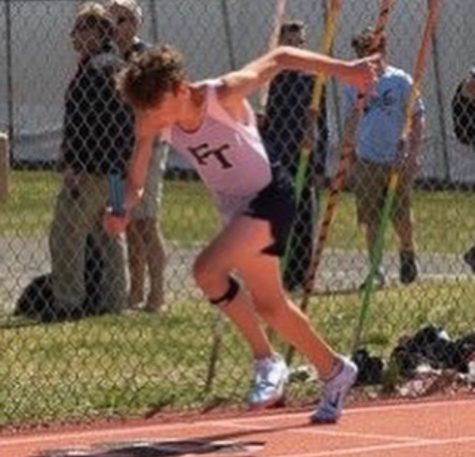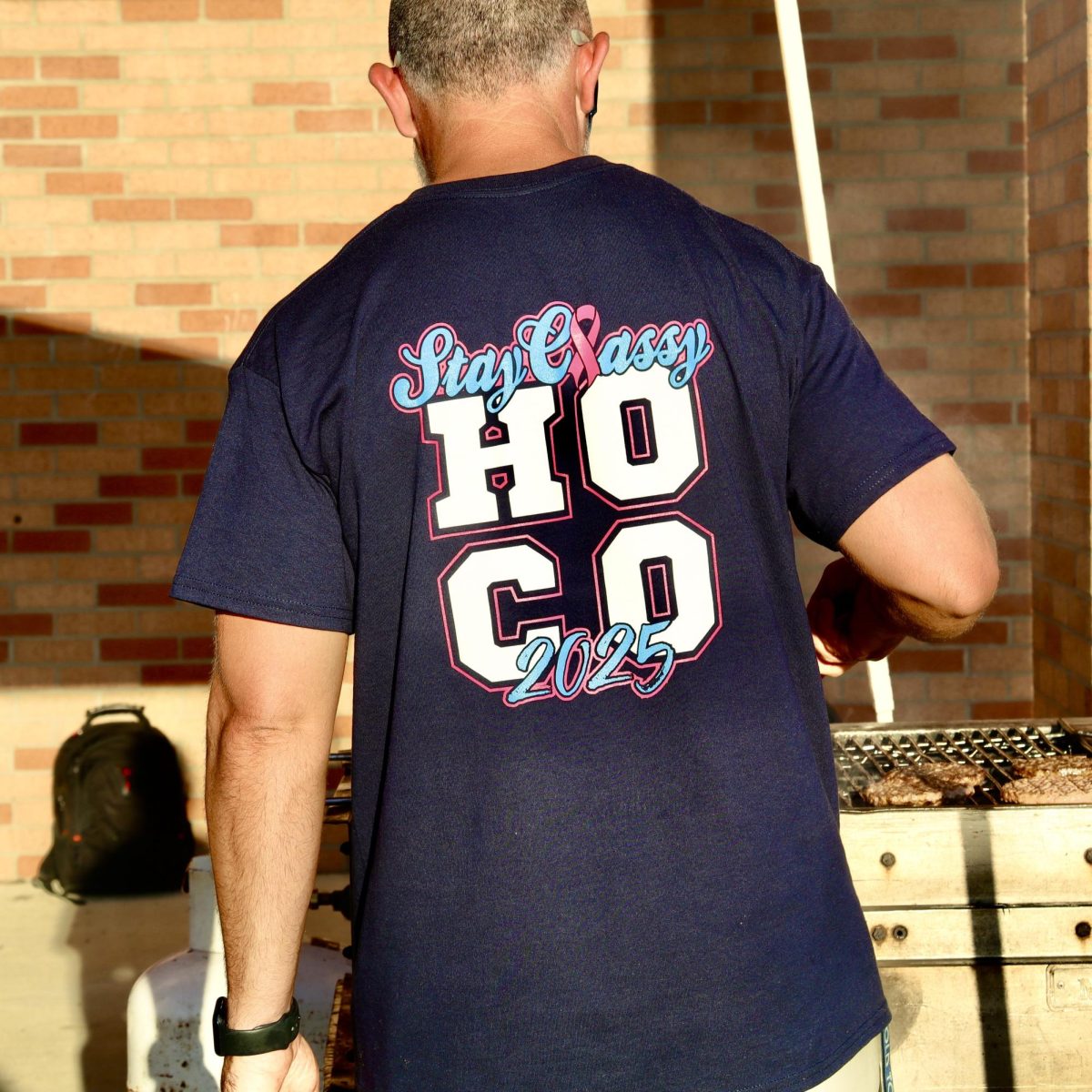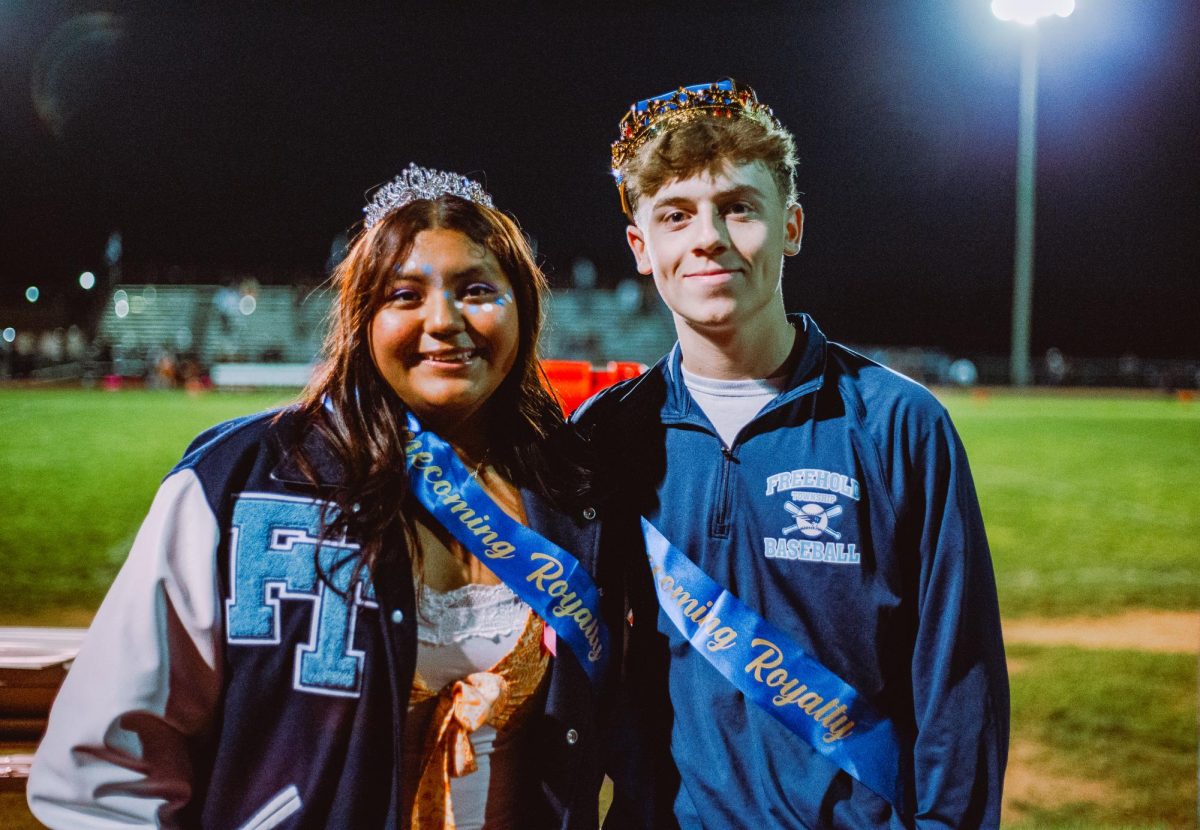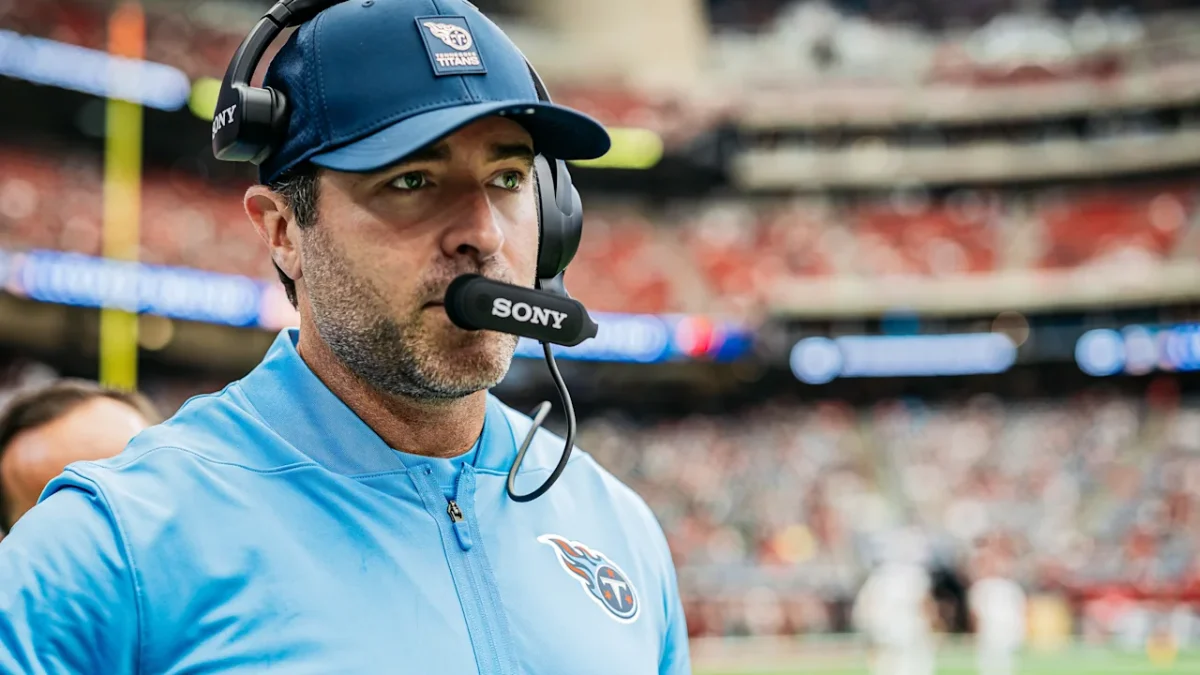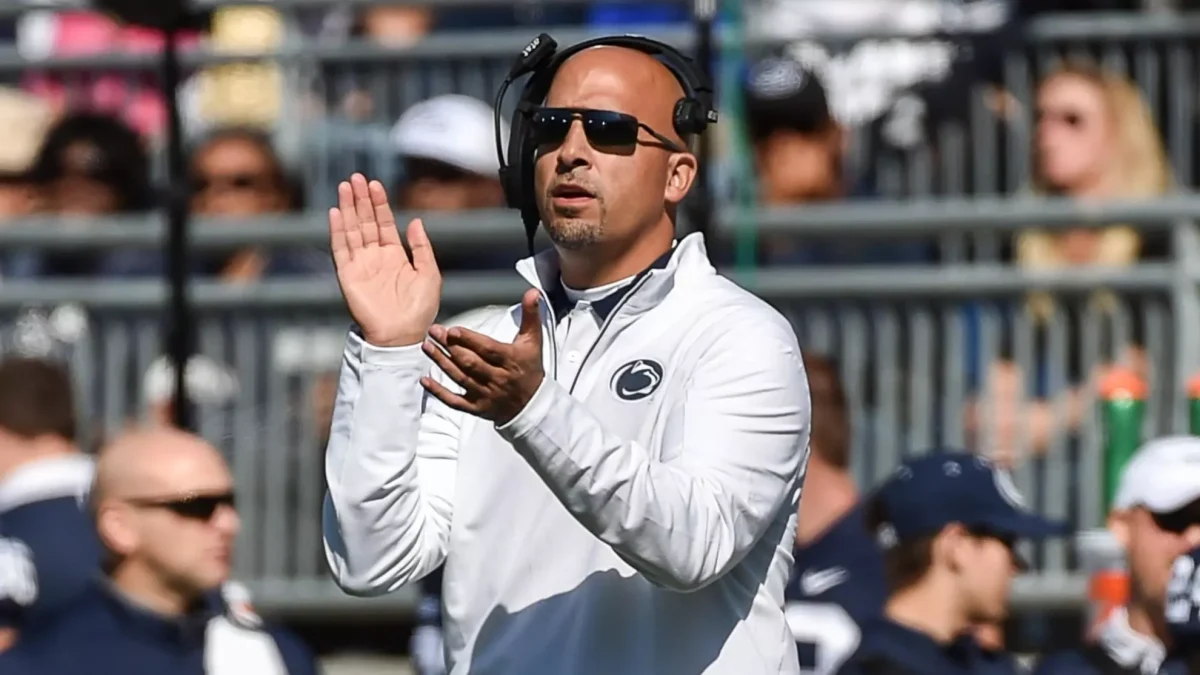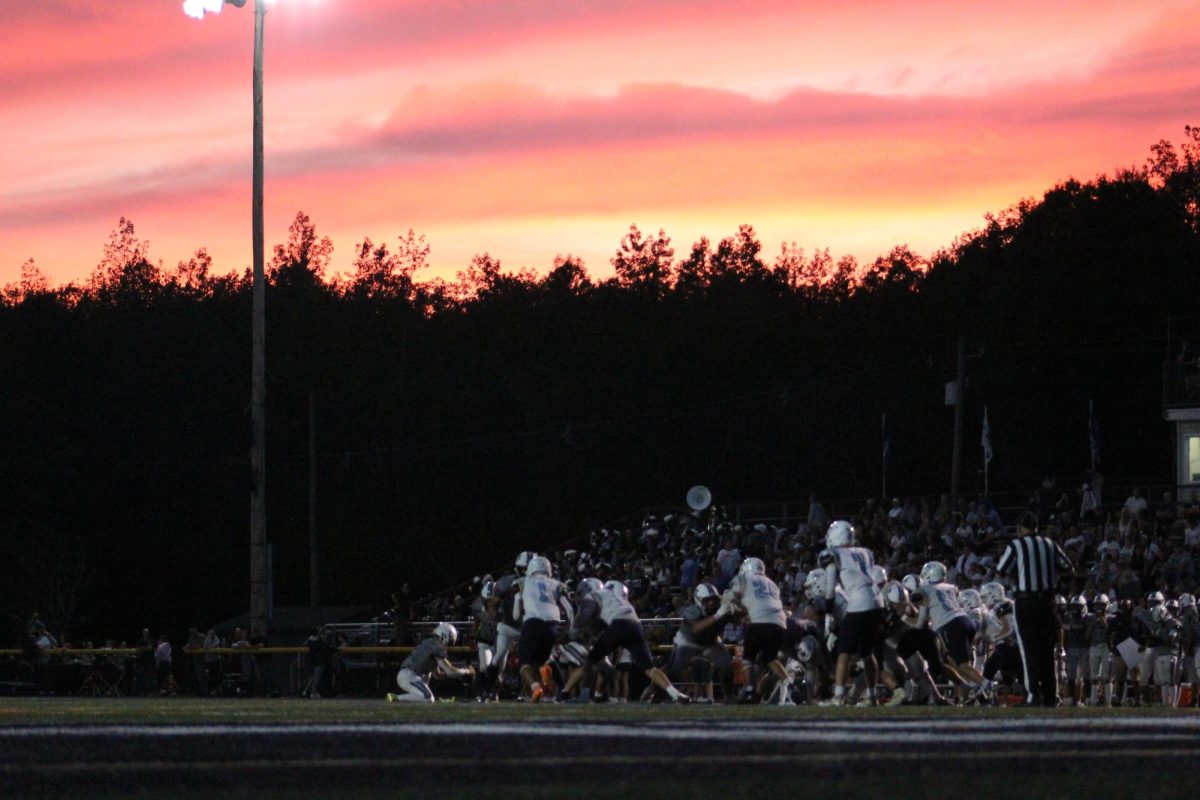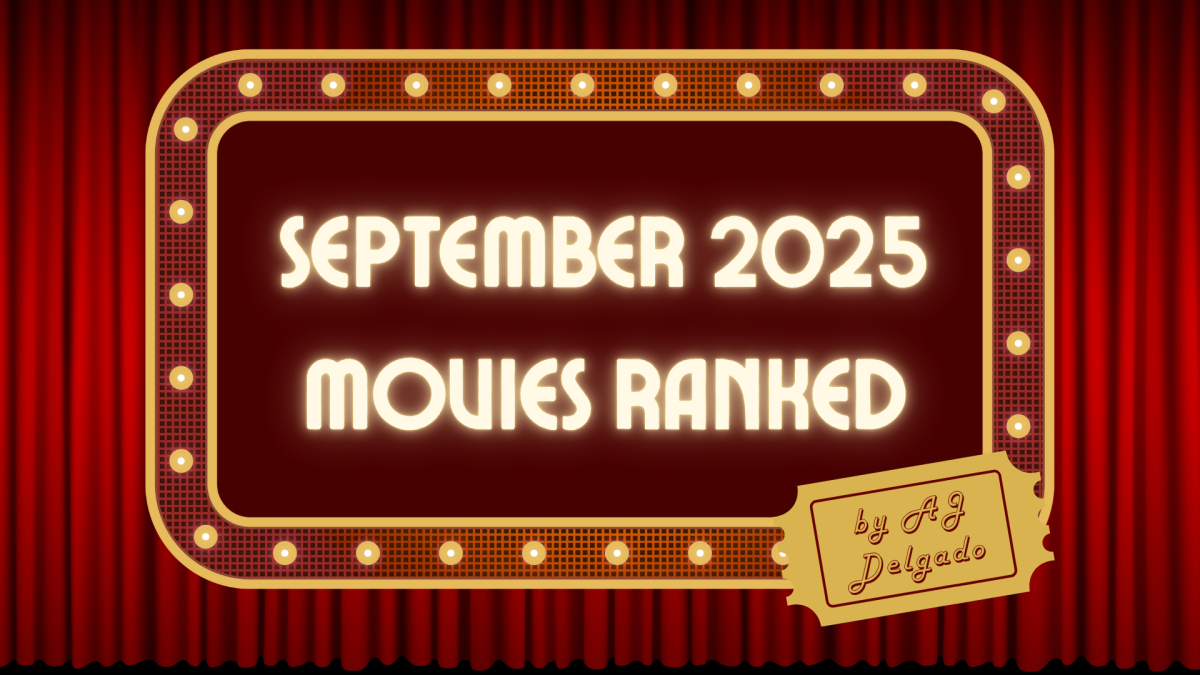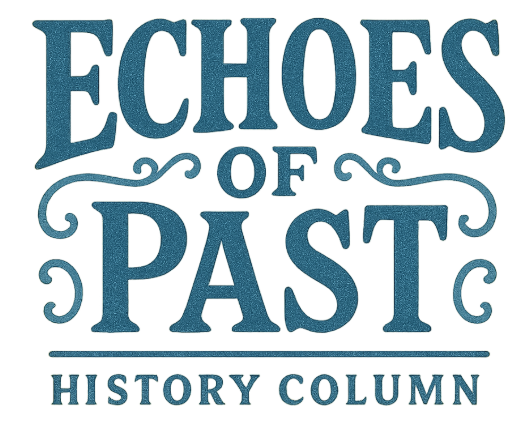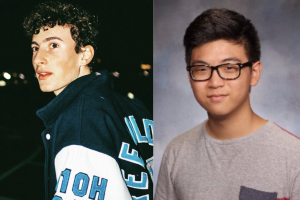Luke Pesce
November 25, 2020
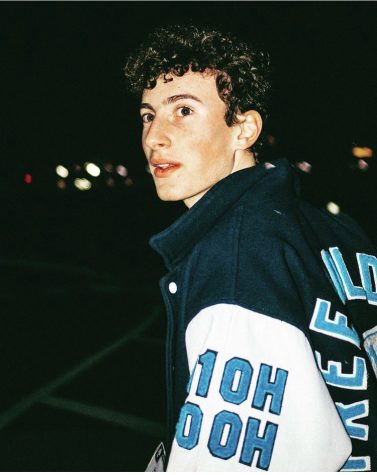
Luke Pesce’s aspirations for his time in high school have been to delve into every opportunity that is presented to him at Freehold Township. He has undoubtedly reached this, demonstrated by his extensive list of extracurriculars. Luke continuously seeks to challenge himself, desiring to broaden his perspectives and deepen his wide variety of interests.
Read the full interview below:
Olivia Naum: What would your ideal vacation look like?
Luke Pesce: Probably somewhere in western Europe. I go to Italy very often, so going somewhere like Germany or France would definitely be somewhere a little different but also somewhere similar to Italy.
ON: What movie have you watched the most?
LP: Definitely Goodfellas. I love Italian mob movies. I know it’s a similar thing to Italian stuff but I love mob movies and Goodfellas is probably one of the best movies I’ve ever watched.
ON: If you could have dinner with any historical figure, who would it be?
LP: Let me think about this one. I think it would probably be an artist, someone like, I guess, John Travolta- or like an actor because I always wanted to get into acting. So, I always like to ask those kinds of questions.
ON: Any other facts that you think we should know about you?
LP: I speak Italian. I’m six foot two. I’m a volunteer firefighter.
ON: That’s cool! Explain that more to me, what does that entail?
LP: So, my dad’s actually a firefighter in New York City. I always wanted to try something like that. I’m actually a junior firefighter in Englishtown. I go there at least once a week and I spend at least three or four hours there and I drill and practice on firetrucks, drills, CPR training, different fire rescue techniques, and if I’m ever there when a fire call goes out then I’ll hop on the truck with some other guys and we’ll go respond to an emergency. It’s really exciting, it can be really- you get a lot of adrenaline out of it, especially when there’s a call and you have to get on a truck and really get there quickly. So, there’s a lot that goes into it.
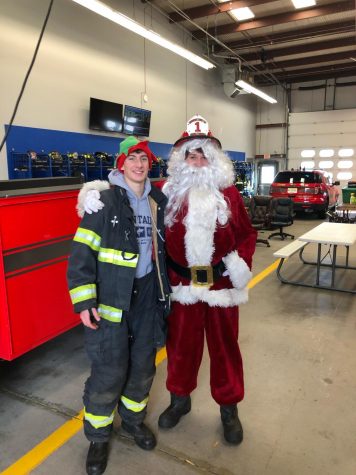
ON: How would you describe your high school experience in one word or phrase? Explain your answer.
LP: I think the best word would be broad. I think that’s because when I entered high school I really made it part of my goal to within four years to explore as much as I could about high school and every aspect that was given to me because there were so many opportunities here. First year I did soccer, I did three seasons of sports. I did soccer, winter track, and spring track. Then I also signed up for JSA in my first year. I also continued to do soccer through sophomore year. I tried the musical junior year. I did Italian Honors Society and obviously Global Studies, which is something I obviously came into the high school to do. And I don’t know, I did some other small stuff as well. I always wanted to try different things and make sure I got every aspect and see really what I liked. So when I left high school, even though I’m still in there, when I left, I kind of had a better picture of what I liked and didn’t.
ON: So what do you think you’ve learned about yourself from these different activities. What is it that you like and don’t like?
LP: I definitely like something that is challenging, I never liked something that was quick and easy. I always want to do something more, something that I can accomplish, whether that be through track, gold medals, winning races, some sort of gratification at the end of a lot of work. Track practice was tough, I’m not going to lie, like I threw up, it gets really rough at some points. But I have my medals on my wall, I’m really proud of it. Acting in the high school musical, there’s a theater, Count Basie Theater, that gives out reviews and my first review was just as satisfactory, which is kind of the average level line. But I worked during the musical and I got an excellent rating, so it’s some sort of gratification. And obviously as JSA president, that’s also something that I’ve been able to work towards in four years.
ON: What was one of your favorite memories from high school so far?
LP: Once again, they all have to do with extracurriculars, mostly. Not to say that my average high school experience was bad. They were just, crazy moments that happened. I vividly remember during winter track, our relay team, consisting of me and three of my friends, in Global Studies actually. We won, it was freezing cold outside, it must have been like twenty degrees. And I was in like, short shorts, and a t-shirt, and I was so cold but we won this race in like a blow-out margin and we were just jumping up and down in the cold, like freezing. I was so happy about that. And I also had so many experiences with JSA that I’ve enjoyed, I mean, I won a best speaker gavel, I was really proud of that. And soccer, I’ve had a couple of moments.
ON: It’s great when you work so hard for something and you’re able to see that result.
LP: Yes, definitely. The gratification, from something like that, is something that I’ll never forget. Especially when you work so hard and you put so much effort in. I mean, the results of getting something easy are never satisfying, as when you work so hard for something. You really, really value it.
ON: That’s so true. As you know there’s a significant number of JSA members who are also in Global Studies. So, what aspects of your personality allow for both of these programs to be appealing to you?
LP: Well, I’ve alway seen JSA as an extension of Global Studies. Even though, sometimes, I feel like I shouldn’t because it’s a club for the entire school. When I came in freshman year, I saw students in Global Studies who were seniors, who were really knowledgeable and really confident when they were speaking about different subjects and they really gave me a lot of perspective. Since then, I’ve learned so much from those people who are older than me in Global Studies that I’ve been able to collect that and learn from that and extended what I’ve learned from JSA into Global Studies. That whole political aspect of my high school education has been really fulfilling. And so now I’m a senior and I’m in the spot where I was looking up to kids, like four years ago, and I feel like it’s my responsibility to do the same thing and try to talk to freshmen and talk to sophomores and teach them what my seniors taught me. That’s where I’ve gone.
ON: What’s something that you try to teach freshman that you’ve learned and feel is something super important to share?
LP: Definitely, tolerance and respect. Especially now, in 2020, where the political climate is so shaky. I feel like people should really take in every account and understand every point of view because it’s so tough to do that nowadays. I just feel like people should get every point of view and if that means me playing devil’s advocate every time I’m in a JSA meeting, then so be it. It doesn’t always have to be what I agree with, it just has to be something they haven’t heard before. Because I don’t want anyone to grow up seeing only one point of view.
ON: How do you think you’ve grown as a person through your experiences with JSA?
LP: I think definitely, being a better speaker. Not to say that I’m the best speaker now. But, freshman year, I was so nervous, I stuttered a lot and I was really insecure about my ideas and I didn’t want to share because I was scared that people were going to judge me for it. But, speaking every single week, you don’t see the progress right away but, speaking every week, it really helps you think about what you’re saying and get across a message that I couldn’t get across freshman year. Now, I feel like I can talk to thirty, forty kids and be like, this is what I think and I think you should see that point of view as well.
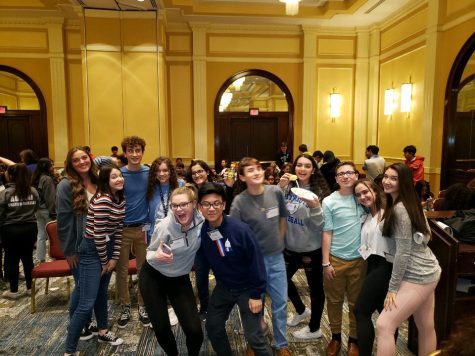
ON: Right, to be able to work and see progress like that is great.
LP: Yeah, definitely. It’s something that I see over the long run, it’s not something I see even within a year of each other. You know, freshman to sophomore year, I didn’t even know there was a change. Now that I’ve totally been through all four years of high school I can really see how much of an impact that really had.
ON: What led you to want to become a leader in JSA?
LP: So, freshman year I was still learning a lot about the structure of the cabinets and the board, MAS, the state, the local, chapter levels. I actually asked the president if I should run for a board position which was pretty ambitious considering that the other people who were running were juniors and I don’t think there had been a freshman running in years. So, I was actually a pretty big underdog in that race, I was really nervous, I wasn’t able to make the nomination ceremony, so that looked really bad on me as well. But when the voting day came, I rallied a lot of underclassmen who had made up a portion of the group and I won by, I think, a vote. It was nerve racking. It was the first leadership position that I’d ever held. I was the state assembly representative. From there, I just kind of met a lot of the other juniors that were in the club at the time and I got a really good hold starting sophomore year how leadership positions go. And from sophomore year to junior year me and Joe went on the same ticket and we both won Co-Presidents. Then this year me and Joe ran against each other, and I was able to thankfully win.
ON: That must have been a huge confident boost to get a leadership position, when you didn’t expect to. That probably helped a lot in your growth in JSA.
LP: Oh yeah, I left the classroom jumping up and down, I was really not expecting to win. I came into that room and I was like, at least I tried and I really learned a lot. You always have to go for something like that and just believe in yourself, even if it doesn’t pan out, keep working at it. So that was something that was important for me, especially freshman year, something that I’ve continued to apply to my life since then.
ON: What does being an effective leader mean to you?
LP: Being an effective leader is being a role model, being someone that is a friend, in a way. I want to make sure that I have that relationship with members. When applying to JSA, it’s someone you can talk to, someone you’re not intimidated by, but also someone that you look up to. I want to be there as a friend and someone you can get a new insight into, like when people ask me what’s your opinion, I know you’re the president of JSA, that’s what I like to hear. I like to know that people want to come to me as a reference and someone who is knowledgeable about a subject. I guess that’s what I feel a leader should be.
ON: Describe the impact that JSA has had on your overall high school experience.
LP: Overall, I’d say JSA, I said it earlier, but I’ll say it again, JSA has made me a better speaker, it’s made me broaden my perspectives. It’s allowed me to meet so many different people. Without JSA, I wouldn’t have met a bunch of people from Texas, people from Guam, North Carolina. It’s made me- it’s hard to describe how much it’s had an impact on my life. It’s really made me more confident in myself. It’s made me more confident about what I say and how I discuss certain issues, especially when it pertains to Global Studies, which is completely affiliated with politics, there’s no way around it.
ON: How important have these relationships that you’ve built through JSA or even Global Studies been in your high school experience?
LP: Throughout JSA, I’ve met people from different places. Which, kind of like meeting people from Italy, it also opened my perspective to how people see things. I mean, we are, here in Freehold Township, this part of Monmouth County is mostly a red environment, within a blue state. I’ve met people from Houston, Texas, who were from a smaller blue environment in a lager red state. So, I see different people, from inner-city kids, kids who live out in the country, kids who have had all different walks of life and what they think, their conservative morals, liberal values, what they think about the government, what they think about patriotism, different aspects that you wouldn’t get just by asking people from our area.
ON: It’s really interesting how, through JSA, we’ve gotten to meet so many people and broaden our perspective about the world in general.
LP: Yeah, that’s definitely been key.
ON: What has been the most surprising element of leading a club at Freehold Township?
LP: Well, I’m looking back to before junior year now because that’s before I took the leadership role. You only view it as something that you see at club meetings. So when you see the president, you think, ok, they’re there at the meeting, they planned out what they wanted to say, they went and said it, then went home and they went through the rest of their day. But there’s so much more behind the scenes, scheduling meetings, talking to advisors, making sure you’re allocating funds properly, different activities, activism ideas, you want to connect different representatives, people to speak with the club. Making sure you have a strong relationship with the members, as well as your board and cabinet because I wouldn’t be anything without the board and cabinet who do so much work. It’s a team of people who need to understand and communicate efficiently and make sure that everyone’s doing their job and if they’re not, then hopping on one another, being like, hey, we have to get stuff done. You know, this is how we’ve got to do it.
ON: What do you see yourself doing after high school?
LP: Ah, the key question. So, I’ve actually thought about this a lot. Obviously, I’m applying to colleges, not even like twenty minutes ago. It’s so difficult for me because, as I said earlier, I love exploring so many different avenues and interests. So, while I say I’m not really sure, I’ve always had an interest in public policy, public administration. So that’s the road that I feel like I’m going down right now. Whether that be a lawyer, I’m not sure yet, that’s something I haven’t really decided upon, but something with international business perhaps. It’s pretty foggy at this moment in time but I wish I had a more clear answer, but unfortunately not quite. I’m still working towards that, if you come back to me in six months, I may have a better answer.
